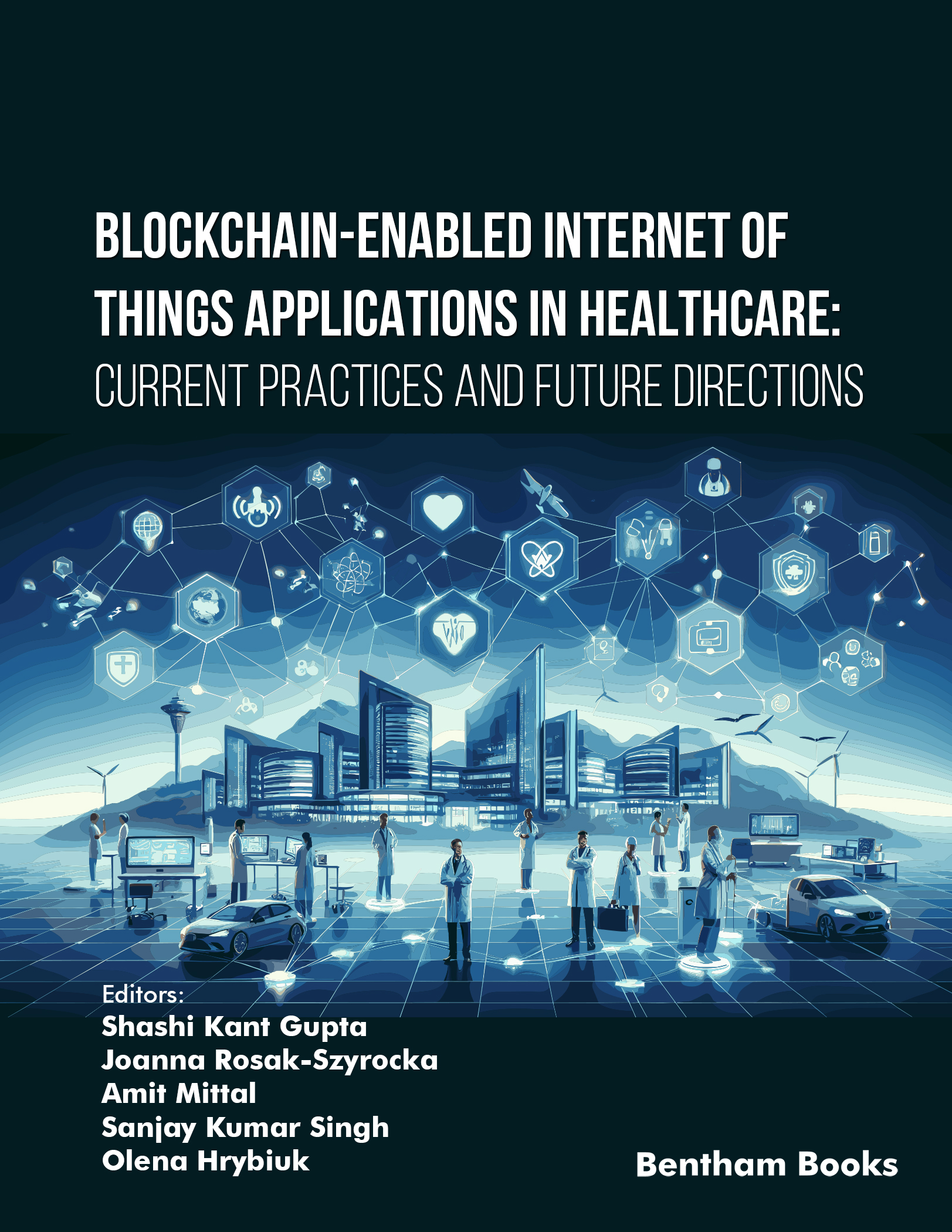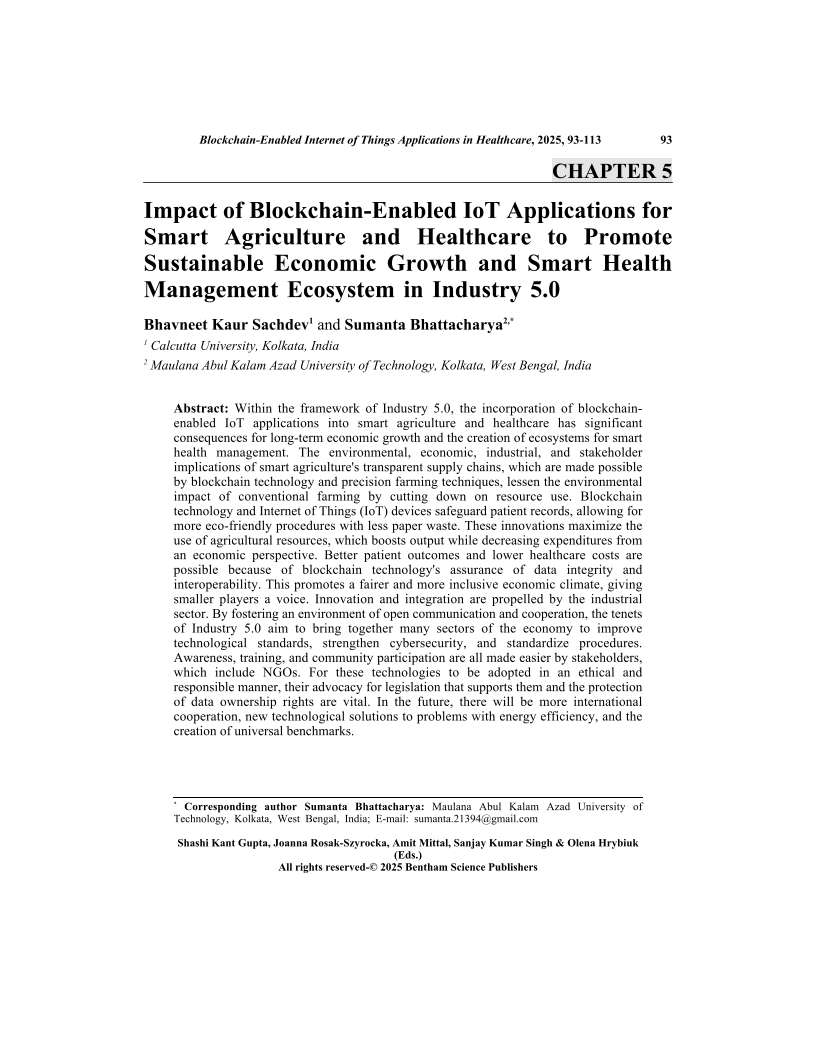Impact of Blockchain-Enabled IoT Applications for Smart Agriculture and Healthcare to Promote Sustainable Economic Growth and Smart Health Management Ecosystem in Industry 5.0

- Authors: Bhavneet Kaur Sachdev1, Sumanta Bhattacharya2
-
View Affiliations Hide Affiliations1 Calcutta University, Kolkata, India 2 Maulana Abul Kalam Azad University of Technology, Kolkata, West Bengal, India
- Source: Blockchain-Enabled Internet of Things Applications in Healthcare: Current Practices and Future Directions , pp 93-113
- Publication Date: January 2025
- Language: English
Impact of Blockchain-Enabled IoT Applications for Smart Agriculture and Healthcare to Promote Sustainable Economic Growth and Smart Health Management Ecosystem in Industry 5.0, Page 1 of 1
< Previous page | Next page > /docserver/preview/fulltext/9789815305210/chapter-5-1.gif
Within the framework of Industry 5.0, the incorporation of blockchainenabled IoT applications into smart agriculture and healthcare has significant consequences for long-term economic growth and the creation of ecosystems for smart health management. The environmental, economic, industrial, and stakeholder implications of smart agriculture's transparent supply chains, which are made possible by blockchain technology and precision farming techniques, lessen the environmental impact of conventional farming by cutting down on resource use. Blockchain technology and Internet of Things (IoT) devices safeguard patient records, allowing for more eco-friendly procedures with less paper waste. These innovations maximize the use of agricultural resources, which boosts output while decreasing expenditures from an economic perspective. Better patient outcomes and lower healthcare costs are possible because of blockchain technology's assurance of data integrity and interoperability. This promotes a fairer and more inclusive economic climate, giving smaller players a voice. Innovation and integration are propelled by the industrial sector. By fostering an environment of open communication and cooperation, the tenets of Industry 5.0 aim to bring together many sectors of the economy to improve technological standards, strengthen cybersecurity, and standardize procedures. Awareness, training, and community participation are all made easier by stakeholders, which include NGOs. For these technologies to be adopted in an ethical and responsible manner, their advocacy for legislation that supports them and the protection of data ownership rights are vital. In the future, there will be more international cooperation, new technological solutions to problems with energy efficiency, and the creation of universal benchmarks.
-
From This Site
/content/books/9789815305210.chapter-5dcterms_subject,pub_keyword-contentType:Journal -contentType:Figure -contentType:Table -contentType:SupplementaryData105

